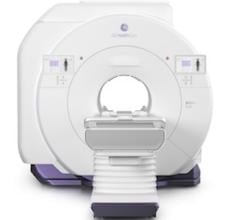April 6, 2011 – Using MRI, researchers may be able to predict which adults with mild cognitive impairment are more likely to progress to Alzheimer’s disease. The finding comes from a study published online and in the June issue of Radiology.
Mild cognitive impairment (MCI) is an intermediate stage between the decline in mental abilities that occurs in normal aging and the more pronounced deterioration associated with dementia, a group of brain disorders that includes Alzheimer’s disease (AD).
Individuals with MCI develop AD at a rate of 15 to 20 percent per year, which is significantly higher than the one to two percent rate for the general population. Some people with MCI remain stable while others gradually decline and some quickly deteriorate.
“Being able to better predict which individuals with MCI are at greatest risk for developing Alzheimer’s would provide critical information if disease-modifying therapies become available,” said the study’s lead author, Linda K. McEvoy, Ph.D., assistant professor in the department of radiology at the University of California, San Diego School of Medicine.
McEvoy and a team of researchers analyzed MRI exams from the Alzheimer’s Disease Neuroimaging Initiative (ADNI), a large publicly and privately sponsored study. The study performed imaging and other tests on hundreds of healthy individuals and others with MCI and early AD between 2005 and 2010 in hopes of identifying valuable biomarkers of the disease process.
Included in the study were a baseline MRI exam, serving as an initial point of measurement, and a second MRI performed a year later on 203 healthy adults, 317 patients with MCI and 164 patients with late-onset AD. The average age of the study participants was 75.
Using MRI, the researchers measured the thickness of the cerebral cortex, the outermost layer of the cerebral hemispheres of the brain that plays a key role in memory, attention, thought and language. They then observed the pattern of thinning to compute a risk score. One of the characteristics of AD is a loss of brain cells, called atrophy, in specific areas of the cortex.
“MRI is very sensitive to brain atrophy,” McEvoy said. “There’s a pattern of cortical thinning associated with AD that indicates the patient is more likely to progress to AD.”
Using the baseline MRI, the researchers calculated that the patients with MCI had a one-year risk of conversion to AD ranging from three to 40 percent.
“Compared to estimating a patient’s risk of conversion based on a clinical diagnosis only, MRI provides substantially more informative, patient-specific risk estimates,” McEvoy said. “The baseline MRI helped identify which patients were at very low risk of progressing to Alzheimer’s and those whose risk was doubled.”
By combining results of the baseline MRI and the MRI exam performed one year later, the researchers were able to calculate a rate of change in brain atrophy that was even more informative. The MCI patients’ risk of disease progression based on the serial MR exams ranged from 3 to 69 percent.
“Rapid thinning of the cortex is reflective of a degenerative disorder,” McEvoy explained.
Although no treatments currently exist that slow or prevent the neurodegeneration associated with AD, McEvoy said patients at high risk of progressing to AD might want to enroll in clinical trials of disease-modifying therapies. She said the information would also help ensure patients receive optimal care and allow families more time for planning.
For more information: www.rsna.org


 February 20, 2026
February 20, 2026 









